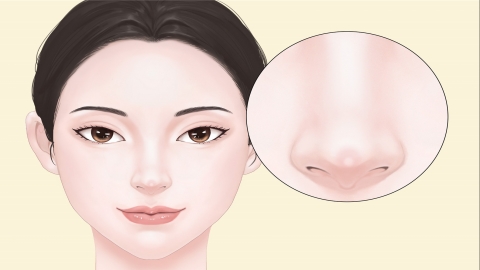What are the contraindications after rhinoplasty?
Generally, rhinoplasty procedures include implant rhinoplasty, costal cartilage rhinoplasty, and hyaluronic acid injection rhinoplasty. These procedures mainly improve the nasal shape by augmenting the external nose with autologous or allogeneic tissues. The general reference price for rhinoplasty ranges from 3,000 to 8,000 yuan per session. Noticeable improvement is usually observed within 1 to 3 months, although symptoms such as redness, swelling, and pain may occur. Postoperative prohibitions following rhinoplasty include avoiding strenuous exercise, nasal trauma or pressure, contact with water and wound contamination, consumption of irritant foods, alcohol, and smoking, as well as unauthorized use of medications or skincare products. A detailed explanation is as follows:

1. Avoid Strenuous Exercise
After surgery, the nose requires adequate rest and recovery; therefore, strenuous exercise or excessive fatigue should be avoided to prevent interference with wound healing and surgical outcomes. High-intensity activities such as running, swimming, wrestling, and ball sports should be suspended for several weeks post-surgery to avoid nasal displacement or deformation caused by external impact.
2. Avoid Nasal Trauma and Pressure
During the recovery period, protect the nose from touching, squeezing, or bumping. Additionally, avoid wearing eyeglasses or any items that may exert pressure on the nose. Furthermore, avoid direct sunlight and high-temperature environments that may cause nasal swelling and discomfort.
3. Strictly Avoid Contact with Water and Wound Contamination
Prior to complete wound healing, contact with water should be avoided. When washing the face or hair, carefully avoid the nasal area to prevent bacterial infection. If the wound accidentally comes into contact with secretions or stains, gently wipe with a sterile swab dipped in normal saline and then apply the anti-inflammatory ointment prescribed by the physician.
4. Strictly Avoid Irritant Foods, Alcohol, and Smoking
Avoid consuming spicy, greasy, and seafood-based irritant foods such as chili peppers, ginger, fish, and shrimp, as these may trigger inflammatory responses and delay wound healing. Smoking and alcohol consumption should also be avoided, as nicotine and alcohol can impair blood circulation, increasing the risk of swelling and infection.
5. Avoid Unauthorized Use of Medications or Skincare Products
Without the physician's permission, do not apply any skincare products, ointments, or take anticoagulant medications such as aspirin on the nose, as these may interfere with blood coagulation or irritate the wound. If pain or swelling relief is required, strictly follow the physician's instructions regarding prescribed medications.
It is recommended to visit a reputable hospital and perform the above procedures under the guidance of a qualified physician to ensure surgical safety and stability. Strict adherence to the above postoperative prohibitions is necessary to ensure surgical outcomes and personal health.





